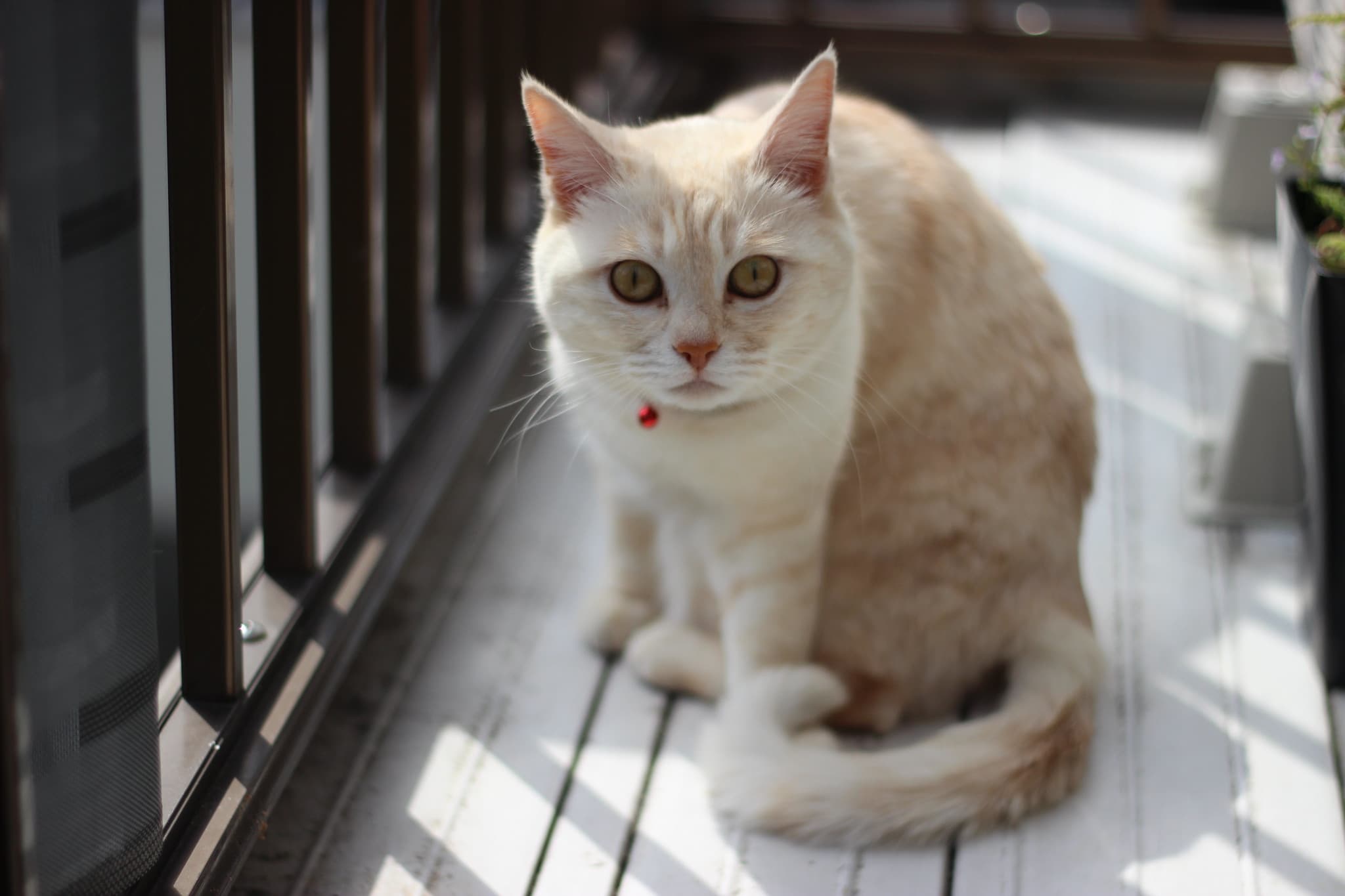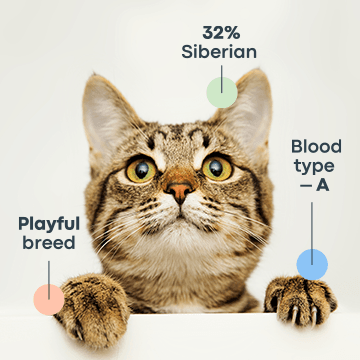Carnations, also known as Dianthus caryophyllus, belong to the Caryophyllaceae family. They are commonly known as sweet William, pinks, and wild carnations. Carnations have leaves ranging from blue-grey to green leaves with attractive fringed blooms from palest to darkest pink. Carnations are a common flower in areas such as Europe, North Africa, and certain parts of North America. Their typical bloom time is in late July to early August, and they generally go to seed in September.
Maybe people enjoy their cheerful blooms in their gardens and as colorful bouquets indoors. But, if you are a cat parent, you may wonder if carnations are toxic to your furry little friend.
So, are carnations safe for cats or maybe cats and carnations aren’t a good mix?
How Serious Is Carnation Poisoning?
If your kitty ingests the stem, petals, or leaves from a carnation plant, watch your cat closely for symptoms of carnation toxicity. Carnations are only mildly toxic for cats but can cause gastrointestinal upset resulting in vomiting and diarrhea. Carnations, like other species of Dianthus, can also cause dermatitis (skin irritation) as their sap contains triterpenoid saponins. These substances may also cause similar irritation of your pet’s esophagus and stomach after ingestion.
Are carnations toxic to cats? Well, carnation toxicity in cats is not fatal, but it is obviously best avoided if possible.
Flowers That Are Toxic to Cats

Even though consuming carnations does not pose a serious health risk to your cat, there are other popular plants that can cause more damage should your kitty decide to snack on them. These include:
Orchids
Are orchids poisonous to cats? Many varieties of orchids can be toxic to cats. The level of toxicity can vary depending on the specific type of orchid and the cat's sensitivity to it. Some common symptoms of orchid toxicity in cats may include vomiting, diarrhea, drooling, and gastrointestinal upset.
Hydrangea
Hydrangea are large shrubs that can reach as high as seven feet tall. It has very large blooms that are usually blue or pink in color. Despite its attractiveness, these plants are toxic to cats, so if your pet goes outside and you have hydrangea bushes, be aware. If your pet ingests hydrangea, it can cause vomiting and diarrhea.
Tulips
Consuming any part of a tulip plant is harmful to cats, but the most poisonous part of the tulip is the bulb. Signs your cat is suffering from tulip toxicity include drooling, gastric distress, and depression.
Mums
Mums are toxic to cats. Eating a chrysanthemum can cause diarrhea, vomiting, excessive salivation, dermatitis, and a loss of coordination.
Calla lilies
If your cat consumes a calla lily, you can expect to see symptoms such as drooling, difficulty swallowing, and vomiting. Your pet may also experience a burning sensation in their lips, tongue, and mouth. All varieties of lilies - including the Easter, Stargazer, Tiger, and Day - are unsafe for pets. Not only are the petals and buds dangerous, but also the lily’s leaves, stems, and even pollen.
Daffodils
Daffodils, particularly the bulbs, are toxic to felines. Ingestion could result in drooling, vomiting, diarrhea, shaking, irregular heartbeat, and low blood pressure.
Daises
Daises can be very dangerous to your cat, causing symptoms such as vomiting and diarrhea. Dermatitis, or skin irritation, may also be evident. In more serious cases, hemorrhaging can also happen.
It’s important to know which plants are safe for your cat and which are not. The ASPCA website provides an indispensable guide to plants that are toxic and non-toxic to cats.
Carnation Poisoning Symptoms
Although mild symptoms usually result from your pet eating a carnation toxic to cats, the more your kitty consumes, the higher the potential for painfully distressing symptoms. In most situations, the mild stomach upset will resolve on its own. However even just coming into contact with a carnation is enough for the sap to cause contact dermatitis which causes rash and skin irritation.
So, if you have a particularly curious or adventurous cat (and, let’s face it, most of them are as a part of their charm) it is best to avoid the potential problem by not having carnations around your home. If your cat does ingest any part of a carnation, don’t panic, but watch for symptoms of carnation toxicity, including:
Drooling: If you catch your cat munching on a carnation, drooling will probably be the first symptom you see.
Vomiting: Vomiting is common as your cat tries to expel the plant. Secondary effects of vomiting, including dehydration, lethargy, and decreased appetite.can also add to your pet’s distress.
Diarrhea: This is a very common result of carnation poisoning and could cause your cat to become temporarily incontinent.
Skin irritation: The sap of a carnation plant can cause symptoms of dermatitis. You may notice that your pet’s lips and mouth are red and swollen. Luckily, carnation poisoning symptoms in cats usually resolve themselves within a few hours.

Treatment Of Carnation Toxicity In Cats
There is no specific test to diagnose carnation poisoning in cats. Your veterinarian will rule out any other causes that present with similar symptoms to carnation toxicity. After reviewing your feline’s medical history, your pet will undergo a physical assessment. Be sure to inform the vet about the possibility of carnation ingestion or contact. Symptoms like vomiting and diarrhea, are common with other feline health conditions. Your veterinarian will want to ensure your cat is diagnosed properly and not suffering from a more serious malady.
As far as treatment is concerned, a cat’s body removes the carnation toxin through vomiting and diarrhea. Sometimes a cat may require intervention to induce vomiting and replenish lost fluids and electrolytes. A drug that induces vomiting and intravenous fluids may be ordered by your vet to help the process along. Your cat may also receive medication to coat and soothe the stomach and prevent further discomfort from the carnation’s sap.
Is It Safe To Keep Carnations In A Home With Cats?
Even though carnations are only mildly toxic to cats, it is still advisable to keep your cat away from these plants. Better safe than sorry.
Conclusion
Even though it is unlikely that your cat will suffer major complications from ingesting a carnation, it is still advisable to remove any potential hazards from your pet’s environment. There are many pet-friendly plants available to green up your indoor spaces that will not harm your cat.
Frequently Asked Questions
What happens if a cat eats a carnation? Are carnations poisonous to cats?
If your cat eats a carnation don’t panic, but watch for signs of toxicity. Carnations are only mildly toxic for cats but can cause gastrointestinal upset resulting in vomiting and diarrhea. Carnations, like other species of Dianthus, can also cause dermatitis (skin irritation) as their sap contains triterpenoid saponins.
What is the most toxic flower to cats?
All varieties of lilies - including the Calla, Easter, Tiger, Stargazer, Red, Wood, and Day - are unsafe. With some flowers, the petals and the buds are the hazards for cats but, with lilies, it's also the leaves, stems, and even the pollen.
Are daisies and carnations safe for cats?
Daises can be very dangerous to your cat, causing symptoms such as vomiting and diarrhea. Dermatitis, or skin irritation, may also be evident. In more serious cases, hemorrhaging can also result.
Carnations are less toxic to cats than daisies, but it’s still best to keep carnations and cats away if possible.
What part of the carnation is poisonous?
Carnation toxicity in cats results from the animal consuming the plant’s petals, stems, leaves, or even pollen.





